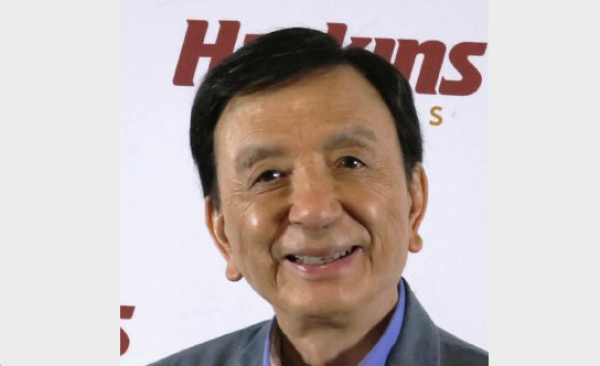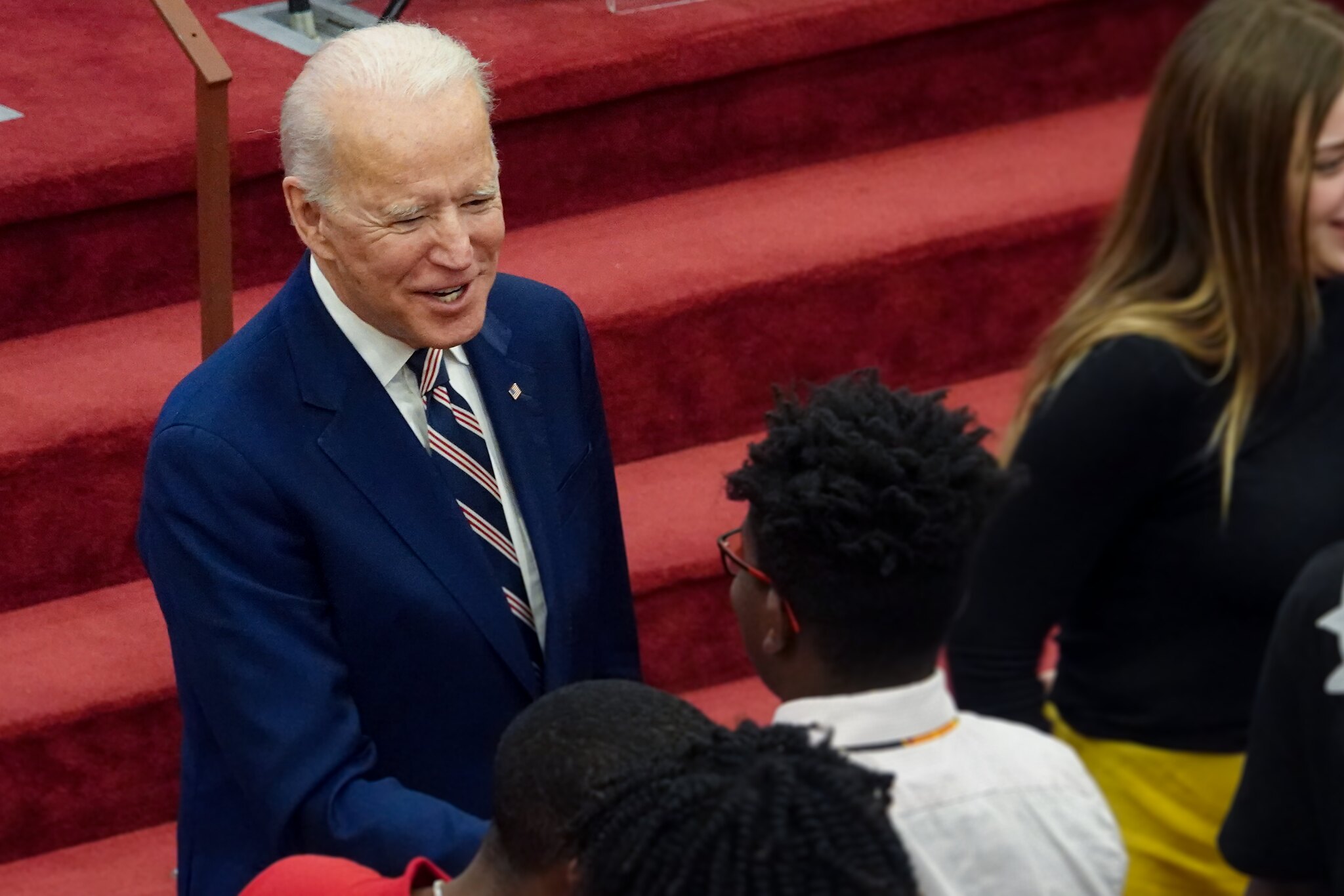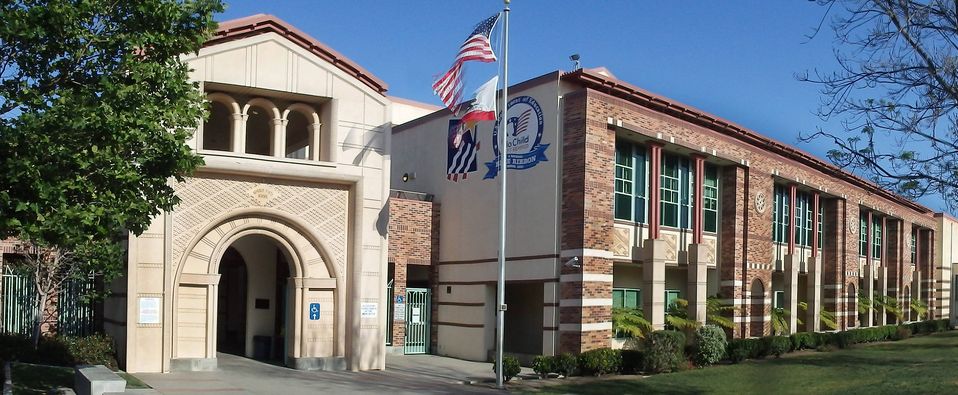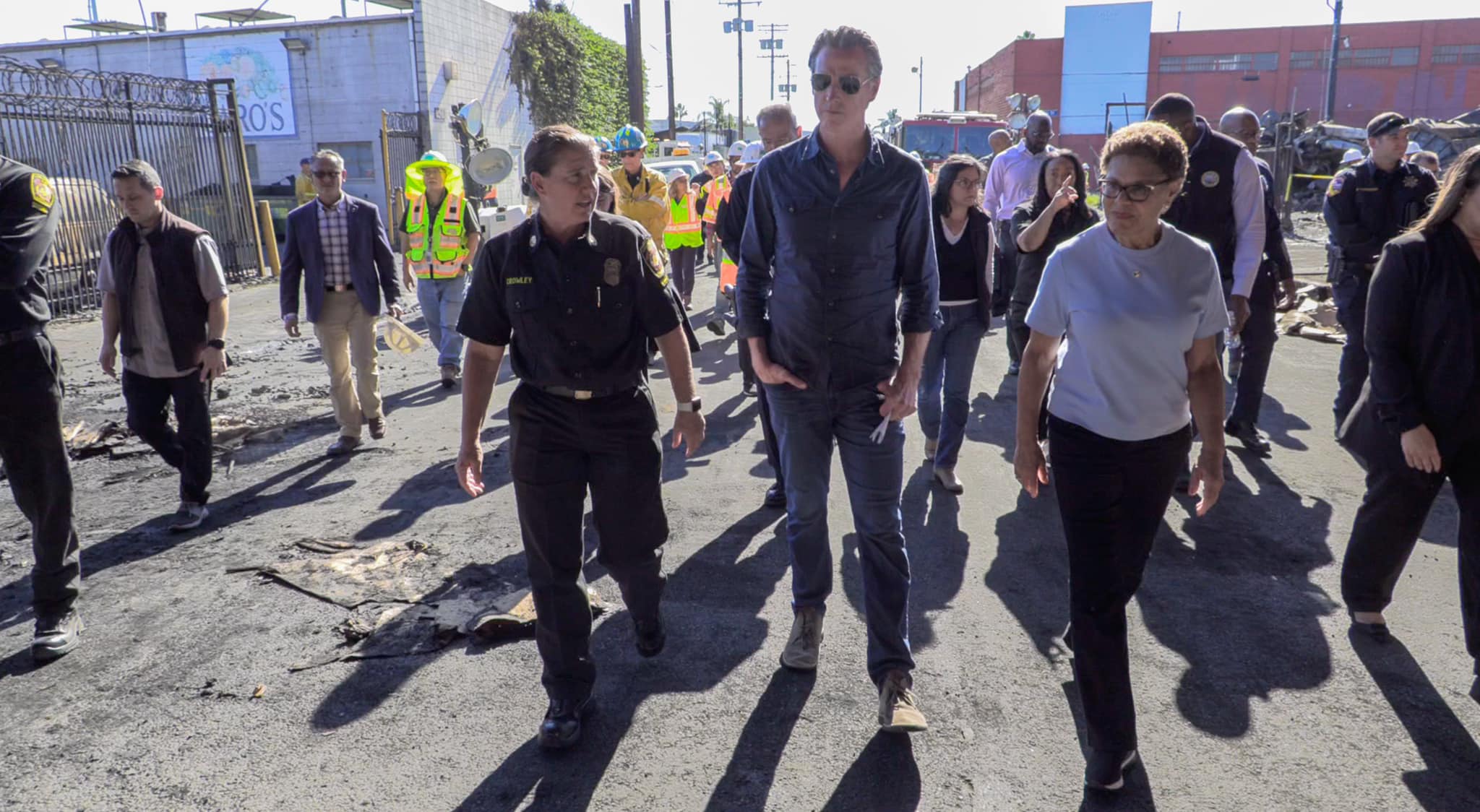James Hong placed his handprints and footprints in cement in the forecourt of the TCL Chinese Theatre IMAX in Hollywood on Thursday, his 95th birthday, honoring a seven-decade acting career with more than 600 credits.
“When I first came here in 19 — I think it was 1953 — the first thing I did was come here and try all the footprints,” Hong told the crowd gathered for the event. “I put mine on top of John Wayne. Wow, too big for me. Too large. Jimmy Stewart? Too large. But now, today, I have my own size.”
Oscar-winning filmmakers Daniel Kwan and Daniel Scheinert and actress Lucy Liu were among those joining Hong at the ceremony.
Kwan and Scheinert won best director and best original screenplay Oscars at last March’s Academy Awards for the best picture-winning time-and space-twisting sci-fi tale, “Everything Everywhere All at Once,” which they produced with Jonathan Wang. Hong portrayed the demanding father of dissatisfied and overwhelmed laundromat owner Evelyn Quan Wang (Michelle Yeoh) in the film.
Liu and Hong both supplied voices for all the “Kung Fu Panda” films, including “Kung Fu Panda 4,” set to premiere March 8.
Born in Minneapolis to Chinese immigrant parents, Hong told CNN in a 2020 interview he received some of his favorite acting inspiration from his father’s herb shop in Minneapolis.
“All the laundrymen from Minneapolis had nothing to do on weekends, so they would gather at my father’s store, herb store,” Hong said. “I remember that, because we’d have those little wooden stools and they all gathered there, and they hired these Chinese opera people from San Francisco to come and do their thing. … I was only a little boy. You watch them with wide eyes, ‘Wow! What a profession.'”
Hong studied civil engineering at the University of Minnesota and joined the Minnesota Army National Guard. His national guard unit was mobilized during the Korean War and Hong was sent for training to Camp Rucker, Alabama.
After finishing his training for the day, he would entertain soldiers. Upon witnessing Hong’s performing prowess, the camp general asked Hong to stay at Camp Rucker and be in charge of the camp’s live shows rather than being deployed to Korea.
After the Korean War, Hong moved to Los Angeles in 1953 with a friend and finished his engineering degree at USC. After graduation he worked as a road engineer for Los Angeles County for 5 1/2 years, while acting in the evenings, the weekends and during his vacation time.
Hong has said his breakthrough came in a 1954 appearance on Groucho Marx’s game show “You Bet Your Life,” when he did impersonations of Marx, James Cagney and others, which resulted in a huge flood of fan mail and landed Hong an agent.
Hong is the only living actor to have worked with Clark Gable and Marx, appearing with Gable in the 1955 adventure film “Soldier of Fortune.”
“Everything Everywhere All at Once,” was the fifth film Hong appeared in that was nominated for a best picture Oscar. The others were “Love Is a Many-Splendored Thing,” “The Sand Pebbles,” “Chinatown” and “Bound for Glory,” with “Everything Everywhere All at Once,” the only one to win.
Hong’s other film credits include “Airplane!” “Big Trouble in Little China,” “Black Widow,” “Blade Runner,” “Flower Drum Song,” “Mulan” and “Wayne’s World 2.”
Hong’s television credits include “Seinfeld,” “All in the Family” and “Perry Mason.”
Hong was among the Asian American artists who founded the East West Players in 1965, seeking to create roles beyond the stereotypical parts they were offered in mainstream Hollywood. It has become the nation’s premier Asian American theater.







